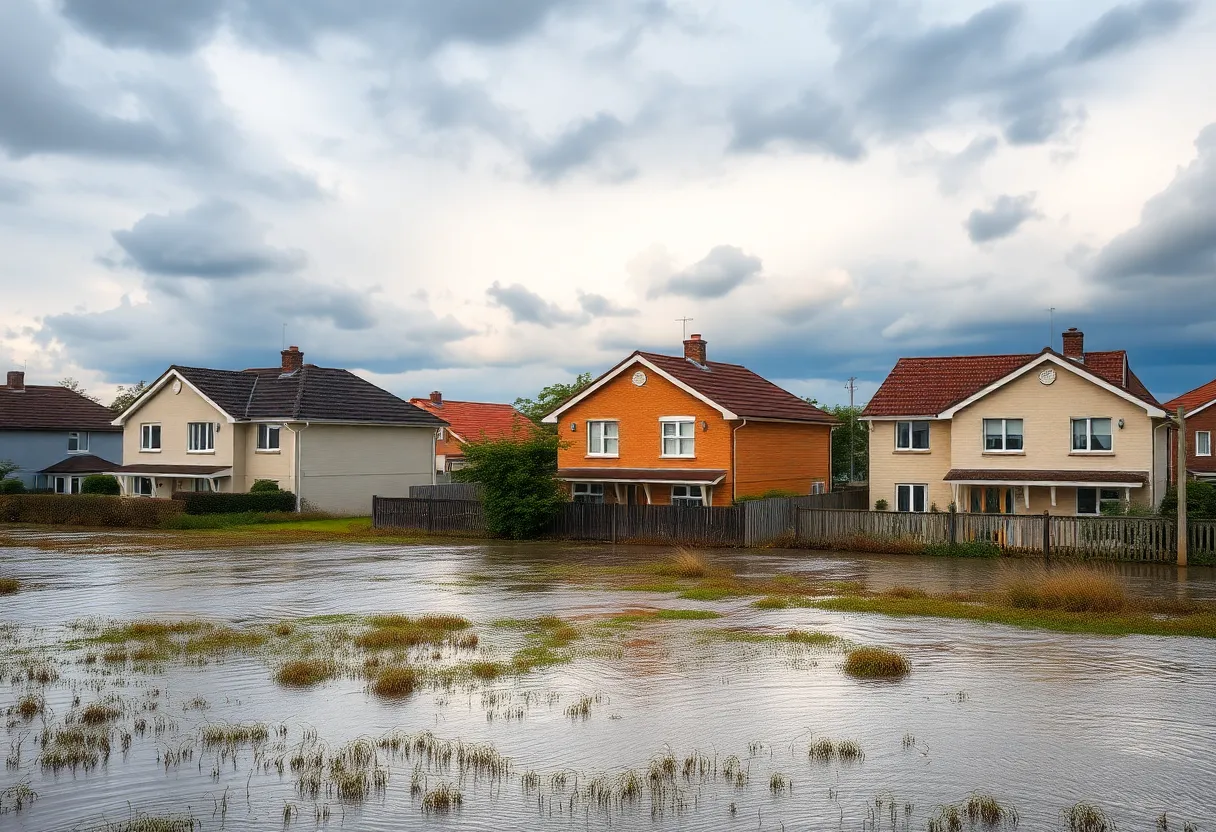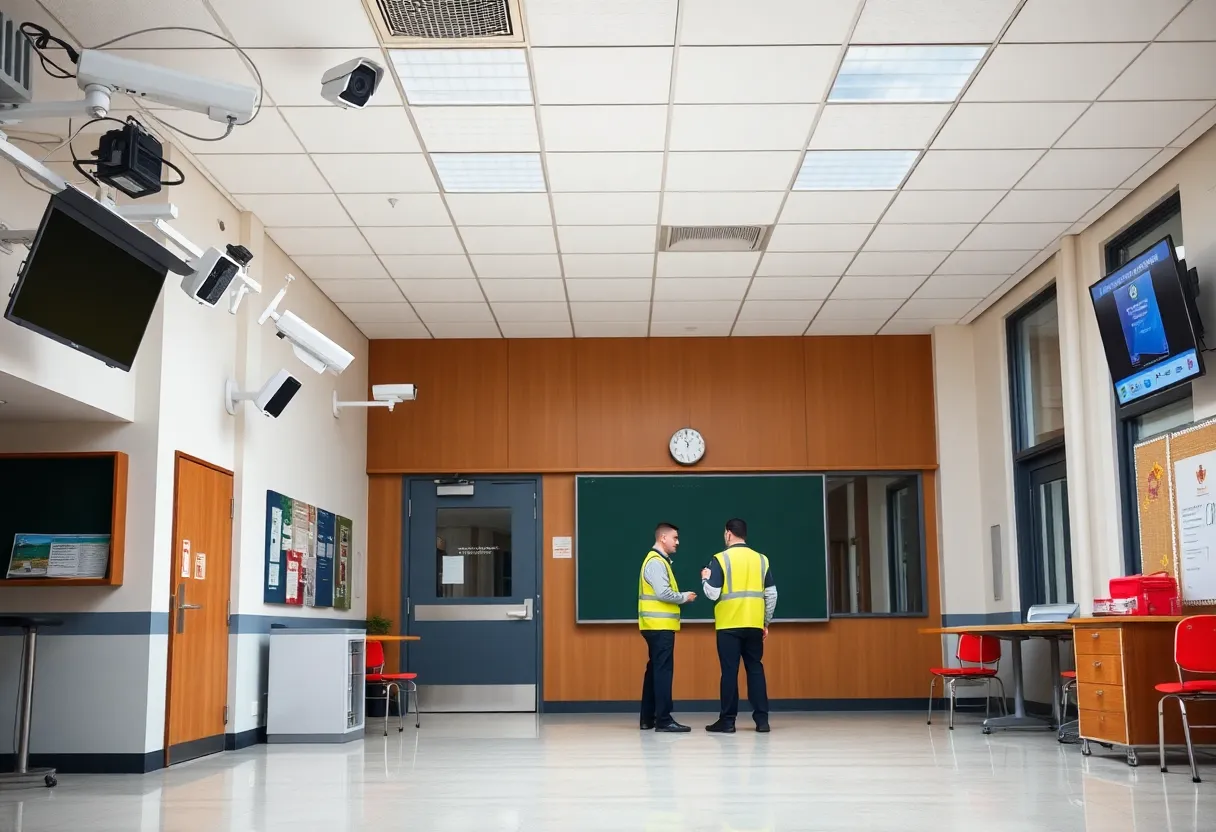News Summary
A recent report from the First Street Foundation reveals that climate change is poised to significantly affect U.S. home values over the next 30 years, potentially leading to a staggering $1.47 trillion decline. Rising sea levels, natural disasters, and unpredictable weather events will exacerbate economic disparities in various communities. Additionally, insurance premiums may soar by nearly 29.4% nationwide. With an estimated 55 million Americans likely relocating due to climate stressors, the real estate landscape is on the brink of a major transformation.
Climate Change to Hit U.S. Home Values Hard Over Next 30 Years
Exciting news on the housing market front, but not in a good way! A recent report from the First Street Foundation indicates that _climate change is set to be a game changer for U.S. home values_. Buckle up, because over the next three decades, we could be looking at a staggering _$1.47 trillion decline in property values_ across the country!
Understanding the Impact
This decline comes with a deeper understanding of how climate change isn’t just an environmental issue; it’s becoming a significant factor affecting the real estate landscape and regional economies. _The report shows that economic gaps in various communities are going to get much worse_ thanks to rising sea levels, natural disasters, and more frequent climate-driven weather events.
Insurance Rates on the Rise
One of the most alarming aspects of the report is how it predicts insurance premiums will soar. By the year 2055, homeowners could see their insurance costs rise by an average of _29.4% nationwide_! In some urban hotspots like Miami, people might experience increases of up to four times their current premiums. Other cities, such as Jacksonville and Tampa in Florida, as well as New Orleans, face a potential tripling of insurance costs.
Who’s Moving Where?
With such financial strain, it’s no surprise that an estimated _55 million Americans will likely be relocating within the country because of climate stressors_. The migration could kick off with _over 5 million people making moves just this year_. Such significant relocations could shake up local markets as people seek more sustainable and affordable living options.
Hot Spots and Risk Zones
This report divides neighborhoods into five categories: _climate abandonment, risky growth, climate resilient, tipping points, and areas facing little climate risk but lacking economic opportunities_. It’s worth noting that some counties in states like California, Florida, and Texas may see property values plummet by _10% to 40% by 2055_. For example, Tampa could experience a substantial _25% decline in home prices_, while areas deemed climate abandonment could see a _6.2% average property value loss_.
Where Do We Go from Here?
As scary as this sounds, it’s essential to understand that these risks are highly localized. Risks can vary widely from neighborhood to neighborhood, making it complicated to forecast where the most significant population shifts will occur. Some areas are still in growth mode, potentially seeing a _76% increase in risky growth zones_, while areas facing climate threats may lose _38% of their residents_.
The Silver Lining?
Interestingly, while the projected property value decline totals _$1.47 trillion_, there is a silver lining. An increase in property values of around _$244 billion_ is also expected in certain areas, particularly those deemed climate resilient. This shift may mean that some homeowners will find new opportunities as the real estate market adjusts to a changing climate.
Final Thoughts
One thing is clear: _climate change is not just a future problem; it’s affecting the present real estate landscape_ right now. Rising insurance rates, predicted population relocations, and uneven property value changes highlight that we are indeed living in a time of transition. Keeping an eye on these trends can help everyone—homeowners, buyers, and sellers—make informed decisions in the coming years as we all navigate this shifting landscape together!
Deeper Dive: News & Info About This Topic
- USA Today: Climate Change Migrations and Lost Property Value
- Axios: Climate Change Insurance Costs and Real Estate
- New York Times: Home Values and Insurance in the Age of Climate Change
- Bisnow: Federal Cuts to Climate Programs and Their Impact
- Realtor.com: Study on Climate Change, Insurance, and Property Values
- Wikipedia: Climate Change
- Google Search: Climate Change Real Estate
- Google Scholar: Climate Change Property Values
- Encyclopedia Britannica: Climate Change
- Google News: Climate Change Real Estate








